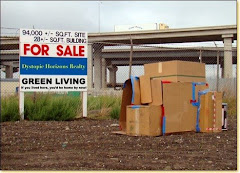Margaret (Peggy) Kohn (Political Science, UofT)
Thursday, March 12th 4:00-4;15pm
Faculty of Architecture, Auditorium, Rm103
Keynote 1
Eve Blau (Architecture, Harvard)
"Research Between Theory & Practice: Case Study 'Project Zagreb'"
In the last twenty years, the rate and intensity of change in cities across the globe – particularly in the developing world – has radically challenged not only normative planning methods, but traditional concepts of urbanism, and our ability to understand the dynamics of change itself. In recent years, particularly in postcommunist Europe, a discourse of “transitology” has emerged, which theorizes the improvised formations of “transitional” cities in terms of a new culture of urban action and even of self-organizing systems. But, these formations, like the condition of postcommunism itself, are proving to be ephemeral. If we want to understand the dynamics and modalities of contemporary urban change and their implications for spatial practices – architecture in particular – we need to develop new techniques for analyzing and representing conditions that are both multiple and unstable, and contingent on equally unstable and multivariate factors; we need, in other words, to (re)ground theory and practice in research.
Thursday, March 12th 4:15-6:00pm
Faculty of Architecture, Auditorium, Rm103 (!)
Discussant: Robert Levit (Architecture, UofT)
Fair-trade coffee and cookies provided by The Local Café
"Research Between Theory & Practice: Case Study 'Project Zagreb'"
In the last twenty years, the rate and intensity of change in cities across the globe – particularly in the developing world – has radically challenged not only normative planning methods, but traditional concepts of urbanism, and our ability to understand the dynamics of change itself. In recent years, particularly in postcommunist Europe, a discourse of “transitology” has emerged, which theorizes the improvised formations of “transitional” cities in terms of a new culture of urban action and even of self-organizing systems. But, these formations, like the condition of postcommunism itself, are proving to be ephemeral. If we want to understand the dynamics and modalities of contemporary urban change and their implications for spatial practices – architecture in particular – we need to develop new techniques for analyzing and representing conditions that are both multiple and unstable, and contingent on equally unstable and multivariate factors; we need, in other words, to (re)ground theory and practice in research.
Thursday, March 12th 4:15-6:00pm
Faculty of Architecture, Auditorium, Rm103 (!)
Discussant: Robert Levit (Architecture, UofT)
Fair-trade coffee and cookies provided by The Local Café
Panel 1 | Locating the Urban Present
Friday, March 13th 9:15–11:00am
Centre for Ethics, Larkin Building, Room 200
Light breakfast will be served from 8:30-9:15
"When mankind loses its storyteller, it will have lost its childhood”, so a quote from Wim Winder’s movie The Wings of Desire. What this quote seems to suggest is that the disappearance of those who recollect past experiences, interweave them with the present and thereby open up new horizons amounts to the disappearance of the desire to explore the possible in what is. What we are left with then is nothing but the present, a present to which there is no alternative – or so it appears. The idea (or ideology) that “there is no alternative” appears to also have gained foothold in the contemporary production of urban spaces, a production increasingly guided by the economic principles of profit-maximization and efficiency. How can we understand the ongoing economization of our urban landscapes? How does the ongoing privatization and commercialization of cities impact the private and public life of urban dwellers? And if economic criteria of profit and efficiency indeed have begun to dominate the production of urban space, how can we account for their success?
Steven Fong (Architecture, UofT): "Five Cities, Great Lakes"
Susan Pell (Humanities, SFU): "Considering Democratic Cities through the Grammar of the Public"
Deborah Cowen (Geography, UofT): "The Logistic City: Containing Insecurity"
Discussant: Adrian Blackwell (Architecture, UofT)
Centre for Ethics, Larkin Building, Room 200
Light breakfast will be served from 8:30-9:15
"When mankind loses its storyteller, it will have lost its childhood”, so a quote from Wim Winder’s movie The Wings of Desire. What this quote seems to suggest is that the disappearance of those who recollect past experiences, interweave them with the present and thereby open up new horizons amounts to the disappearance of the desire to explore the possible in what is. What we are left with then is nothing but the present, a present to which there is no alternative – or so it appears. The idea (or ideology) that “there is no alternative” appears to also have gained foothold in the contemporary production of urban spaces, a production increasingly guided by the economic principles of profit-maximization and efficiency. How can we understand the ongoing economization of our urban landscapes? How does the ongoing privatization and commercialization of cities impact the private and public life of urban dwellers? And if economic criteria of profit and efficiency indeed have begun to dominate the production of urban space, how can we account for their success?
Steven Fong (Architecture, UofT): "Five Cities, Great Lakes"
Susan Pell (Humanities, SFU): "Considering Democratic Cities through the Grammar of the Public"
Deborah Cowen (Geography, UofT): "The Logistic City: Containing Insecurity"
Discussant: Adrian Blackwell (Architecture, UofT)
Panel 2 | Inventing the Present through Romanticizing the Past?
Friday, March 13th 11:15-1:00pm
Centre for Ethics, Larkin Building, Room 200
The practice of neo-traditional planning has had an enormous structural and aesthetic influence, over the past thirty years, on local and global environments. Invested as much in (dreams of) social engineering as in bricks and mortar, it makes the claim that it can create not merely "place," but a socially cohesive, ethnically diverse, and ecologically viable urban environment. Despite the progressive sheen, the communities at its heart are firmly rooted in the past, most often wrapped in myths about the beauty and “healthiness” of small town life. Thus far, however, neo-traditional planning has utterly failed to vindicate its own political claims. Indeed, recent empirical evidence shows that social cohesion is strongly correlated not with ethnic and economic diversity but with socio-economic homogeneity. How can we understand and account for this yearning for a romanticized past - against the background of today's fractured mega polis that seem to have actually replaced small towns as well as against the background of today’s reservations against utopias?
Margaret (Peggy) Kohn (Political Science, UofT): "Dreamworlds of Deindustrialization"
Emre Gonlugur (Art History, UofT): "The Alluring Cul-de-Sacs of Contemporary Urban Experience: The Gated Communities of Istanbul"
Frank Cunningham (Philosophy, UofT): "Triangulating Utopia"
Discussant: Dan Silver (Sociology, UTSC)
Lunch will be served from 1pm-2pm
Centre for Ethics, Larkin Building, Room 200
The practice of neo-traditional planning has had an enormous structural and aesthetic influence, over the past thirty years, on local and global environments. Invested as much in (dreams of) social engineering as in bricks and mortar, it makes the claim that it can create not merely "place," but a socially cohesive, ethnically diverse, and ecologically viable urban environment. Despite the progressive sheen, the communities at its heart are firmly rooted in the past, most often wrapped in myths about the beauty and “healthiness” of small town life. Thus far, however, neo-traditional planning has utterly failed to vindicate its own political claims. Indeed, recent empirical evidence shows that social cohesion is strongly correlated not with ethnic and economic diversity but with socio-economic homogeneity. How can we understand and account for this yearning for a romanticized past - against the background of today's fractured mega polis that seem to have actually replaced small towns as well as against the background of today’s reservations against utopias?
Margaret (Peggy) Kohn (Political Science, UofT): "Dreamworlds of Deindustrialization"
Emre Gonlugur (Art History, UofT): "The Alluring Cul-de-Sacs of Contemporary Urban Experience: The Gated Communities of Istanbul"
Frank Cunningham (Philosophy, UofT): "Triangulating Utopia"
Discussant: Dan Silver (Sociology, UTSC)
Lunch will be served from 1pm-2pm
Panel 3 | Urban Future, Future City
Friday, March 13th 2:00-3:45pm
Centre for Ethics, Larkin Building, Room 200
“Change life, change society”, so a slogan Henri Lefebvre elaborates on in his book The Production of Space. For Lefebvre it is clear, social transformation can only be effective if it takes the everyday life of citizens, lived experience, as its starting point. Without a sincere dialogue between the lived and conceived, without the mediation between practice and theory, aspirations of a sustainable social transformation are bound to be vain – so Lefebvre. If we were to think, plan or build the city of tomorrow, how would we engage with everyday life, which lessons would we draw from it and in which directions would we want to see it develop? In our last panel, we would like to explore the relationship between the lived and the conceived, between practice and theory with regard to the future urban societies we envisage or hope for.
Stefan Kipfer (City Institute, York U): "Everyday Life, Critique, Appropriation"
Paul Bedford (former chief planner, City of Toronto): "A 21st Century Mindset"
Mark Kingwell (Philosophy, UofT): "Concrete Reveries: Consciousness and the City,"
Discussant: Loren King (Political Science, Wilfried Laurier University)
Coffee Break from 3:45-4:15
Centre for Ethics, Larkin Building, Room 200
“Change life, change society”, so a slogan Henri Lefebvre elaborates on in his book The Production of Space. For Lefebvre it is clear, social transformation can only be effective if it takes the everyday life of citizens, lived experience, as its starting point. Without a sincere dialogue between the lived and conceived, without the mediation between practice and theory, aspirations of a sustainable social transformation are bound to be vain – so Lefebvre. If we were to think, plan or build the city of tomorrow, how would we engage with everyday life, which lessons would we draw from it and in which directions would we want to see it develop? In our last panel, we would like to explore the relationship between the lived and the conceived, between practice and theory with regard to the future urban societies we envisage or hope for.
Stefan Kipfer (City Institute, York U): "Everyday Life, Critique, Appropriation"
Paul Bedford (former chief planner, City of Toronto): "A 21st Century Mindset"
Mark Kingwell (Philosophy, UofT): "Concrete Reveries: Consciousness and the City,"
Discussant: Loren King (Political Science, Wilfried Laurier University)
Coffee Break from 3:45-4:15
Keynote 2
Neil Smith (Anthropology, CUNY)
"Urban Revolution"
Friday, March 13th 4:15-6pm
George Ignatieff Theatre (!), Larkin Building
In this lecture, I take as a starting point several recent urban revolts and move quickly to a survey of urban revolts in New York City specifically. The point here is to argue that urban revolts are inevitable, as both Lefebvre and Foucault have argued, but that the issues provoking such revolts, while heavily focused on questions of class exploitation, are highly diverse. The lecture then moves to engage Lefebvre's text of the same title. I conclude by talking about "The Right to the City," also inspired by Lefebvre, but an organizing format that currently inspires myriad local urban organizing efforts.
Discussant: Kanishka Goonewardena (Geography, UofT)
"Urban Revolution"
Friday, March 13th 4:15-6pm
George Ignatieff Theatre (!), Larkin Building
In this lecture, I take as a starting point several recent urban revolts and move quickly to a survey of urban revolts in New York City specifically. The point here is to argue that urban revolts are inevitable, as both Lefebvre and Foucault have argued, but that the issues provoking such revolts, while heavily focused on questions of class exploitation, are highly diverse. The lecture then moves to engage Lefebvre's text of the same title. I conclude by talking about "The Right to the City," also inspired by Lefebvre, but an organizing format that currently inspires myriad local urban organizing efforts.
Discussant: Kanishka Goonewardena (Geography, UofT)
Subscribe to:
Comments (Atom)












